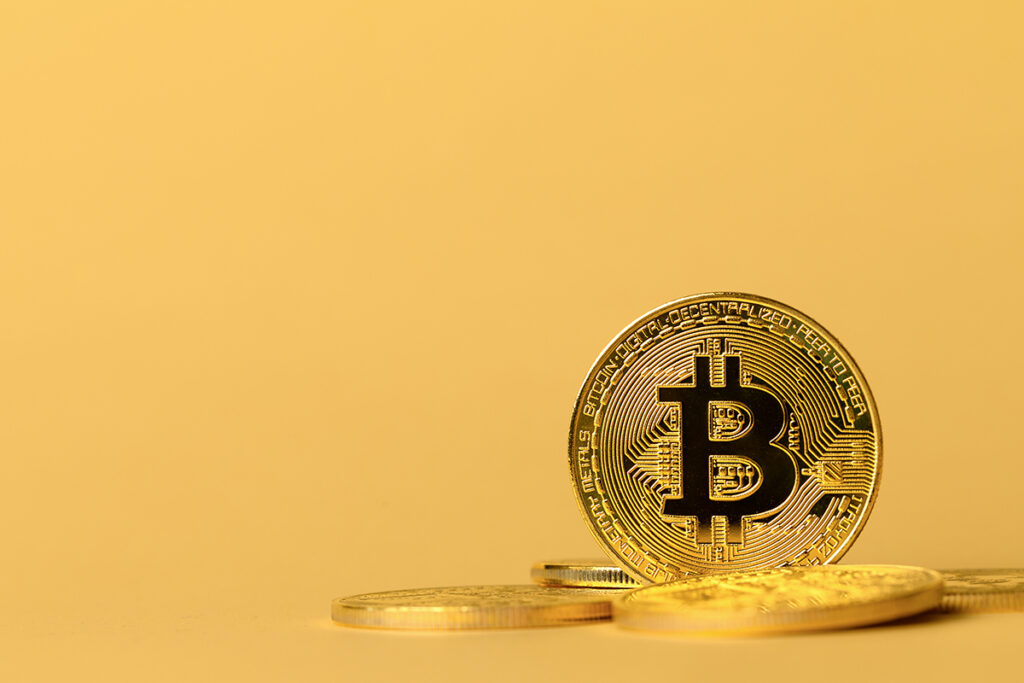To the Moon or Failure to Launch
A frank conversation on cryptocurrency
| 4 min read

Somewhere between football, hard seltzer, and Dr. Dre, more than 200 million people saw four different ads from four different cryptocurrency exchanges during the Super Bowl. Whether this day signaled the moment the crypto-fever hit its peak or was an important milestone in cryptocurrency’s march toward global adoption remains to be seen.
For the uninitiated, these exchanges make it easy for anyone to buy and sell digital currencies that are built on an open and distributed virtual ledger called a blockchain. You don’t need to understand the complexities of the technology to get what it’s going for—a way to securely engage in economic transactions without relying on traditional banking systems and government-issued currency. That, at least, is the promise of cryptocurrency.
While most people have heard of Bitcoin, and maybe a few other coins like Ethereum and Dogecoin, there are currently 9,500+ other assets listed in the Coinbase directory, with more being added every week. According to the White House, digital assets reached a $3 trillion market capitalization in November 2021 with 16% of adult Americans having participated in the buying and selling of these assets. Despite this huge rate of adoption, the federal government only recently issued directives on regulating these markets in a stated effort to protect consumers while advancing innovation.
Two Sides of the Same Coin
When talking about cryptocurrency as a concept, it’s important to distinguish between the idea of crypto as a technological innovation that could revolutionize global banking and fiscal policy, and the idea of it as a financial asset for an investment portfolio here and now. While many futurists are touting its potential as a reason to invest, the one thing all of those Super Bowl ads had in common was more than an implication that crypto investing is a way to get rich. Given that Insider Intelligence estimates only 10.7% of Americans who own a crypto coin will actually use it as a currency, most people buy cryptocurrency because they believe they can turn around and sell it for a profit.
With all the buzz surrounding crypto investing there is a real fear of missing out, especially when you hear anecdotes of crypto-millionaires (and even a few billionaires) who accumulated thousands of coins when they were easy to get and sold them at upwards of $50–$60k per coin at the market’s peak. When online crypto evangelists speak of a world where some of these coins will be worth six and seven figures within a decade, it can feel like a foregone conclusion. This rocket ship is going to the moon, will you come along for the ride or get left behind?
It needs to be stated emphatically that forecasting the future of cryptocurrency is entirely speculative and any given coin could be entirely worthless almost overnight. The crypto market as a whole experienced a dramatic dip less than three months after the Super Bowl spots aired.
At the time of this writing, the market is still significantly down from the all-time highs in 2021. By the time you are reading this that could have changed again—for better or worse.
How to Invest Responsibly
As with any investment, don’t let past gains, current hype, or future promise cloud your judgment. Consider these three fundamentals:
- Crypto is often extremely volatile, capable of dramatic gains and losses from day-to-day, month-to-month, and year-to-year. Only use money thatyou are confident you won’t need to touch any time soon or else you risk buying high and selling low because you caught it when it was ebbing instead of flowing.
- Crypto is still poorly regulated and full of scam artists pushing pump and dump schemes around the latest and greatest coin. If you are treating it as an investment, research how the technology is being adopted, what’s on the horizon, and the potential market around it. And only use exchanges that have built a good reputation.
- Crypto should in no way be an exception to the rule to always diversify your investments. Putting all your eggs in one basket is risky. Putting all of your eggs into a young and volatile investment is playing a high-stakes game of roulette.
For every crypto-millionaire there are many more examples of people destroying their financial livelihood off a bad bet that they felt so sure of at the time. Only invest what you can afford (i.e. what you are willing to lose) on riskier assets like cryptocurrency and make sure to do your research and feel confident about where you are putting your money before investing.
There’s also more to consider than potential gains of losses. Many people are rightfully concerned about the environmental impact of the computational power required to maintain the crypto market. Crypto-asset activity in the U.S. is creating climate-altering greenhouse emissions at similar rates to the diesel fuel exhaust of America’s railroad system. You also need to be extra cautious about your password security as there’s often no recourse for getting your coins back if you are a victim of fraud, or even if you just lose your digital keys.
We aren’t going to tell you whether or not it is a good idea to invest in cryptocurrency—that’s a personal choice. All we can say is make sure you are thoughtful, careful, and levelheaded, even in the face of an A-list actor promising you great fortune when you’re a few beers deep during the next Super Bowl Sunday.






